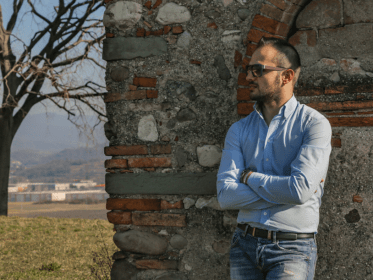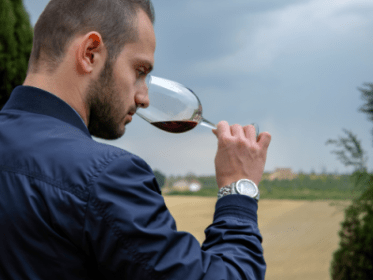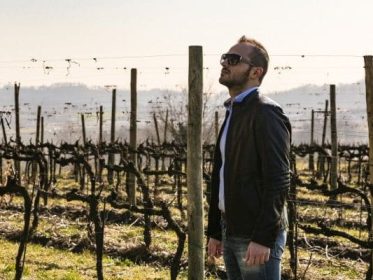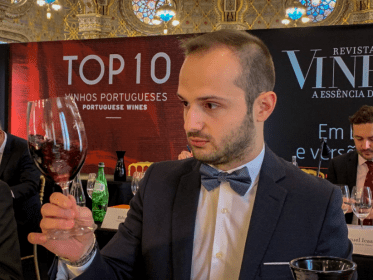Simone Roveda on Leading Wine Travel and Digital Innovation
Author: Veronika Busel
Simone Roveda is a wine consultant, writer, and educator, and the visionary behind WineryLovers, hailed as one of the top 10 Wine Social Media Accounts to Follow by Wine Enthusiast. He has also received the esteemed Fortune Under 40 Wine Award and is recognized as the top wine influencer in Italy according to the World Influencer Ranking.
Known for his authoritative voice in top publications like L’Informatore Agrario, Passione Gourmet, and Reporter Gourmet, Simone also serves as a judge for prestigious competitions such as CMB, Mundus Vini, among others. He is a regular speaker at leading international wine conferences, where he shares innovative approaches that resonate throughout the wine industry. Recently appointed as an ambassador for the Wine Travel Awards, Simone continues to shape the future of wine marketing. We have prepared an extensive interview with Simone to give you deeper insight into his expertise – enjoy the read.
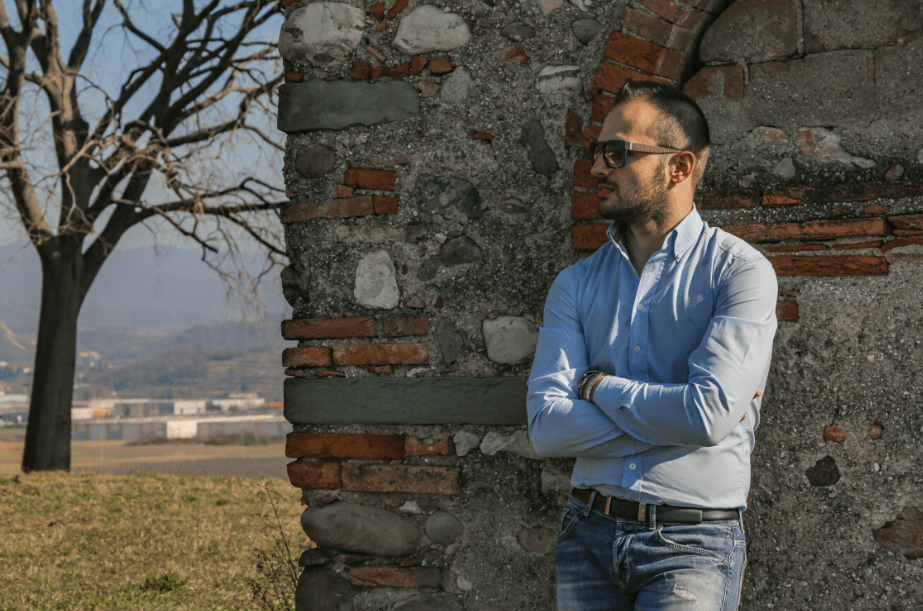
Introduction to Career and Motivation
Veronika Busel: Could you describe the moment when you first considered a career in wine? What inspired you to pursue this path, and what were your initial steps?
Simone Roveda: I was finishing my university studies – I graduated in Engineering of Computing Systems from Politecnico di Milano – when I decided to venture into the wine industry. My passion for wine began during my university years, fueled by my naturally curious personality. I would go to a restaurant, open a bottle of wine, and then the next day try a different one. This eventually led to my first visits to wineries.
As I neared the end of my studies, I decided to focus on digital marketing, which aligned more closely with my interests. I realized that there had been little change in the communication landscape within the wine industry – this was around the end of 2015 and the beginning of 2016. So, I took a leap of faith! On January 28, 2016, I began posting on Instagram through the @winerylovers account. At that time, very few believed in what I was doing; it felt like a big gamble. The industry wasn’t ready for digital and social media. When I attended events, people struggled to understand Instagram and were only vaguely familiar with Facebook. Initially, I posted four times a day. The @winerylovers account served primarily as a repost page, allowing anyone who tagged it or used the hashtag #winerylovers to have their content reshared. By May 2016, I had reached my first milestone of 10,000 followers, and shortly thereafter, during the summer, I hit 25,000 followers. This was the goal I had set for myself. I wanted to achieve a significant following; today, one can initiate collaborations even with just 1,000 followers. My first step was to send out collaboration proposals, offering to publish a post on my page in exchange for a few bottles of wine. That’s how it all began!
V.B.: You have attained the AIS Sommelier certification from the Italian Association of Sommeliers and subsequently earned your WSET Diploma – congratulations on these significant achievements. Could you elaborate on your educational journey in the wine industry? What additional qualifications or certifications have enriched your understanding of wine? Moreover, are there specific influencers or mentors in the field who have inspired you?
S.R.: When I began my journey in the world of wine, I knew very little about it; my choices were based solely on my personal preferences. However, in 2016, as my efforts started to gain traction, I began receiving inquiries from others seeking advice. Some wineries were eager to collaborate with me, prompting me to invest in my education. I realised that, in this role, I had responsibilities to both my supporters and the companies that chose to work with me.
To further my knowledge, I completed all three levels to become an AIS sommelier at the Novara delegation. This initial educational path opened up a whole new world for me; wine is such a vast topic, and there is always something new to explore. I obtained my qualification in 2018, but I didn’t stop there. Since I had been communicating in English from the start, I researched ways to continue my education and chose to pursue the WSET program, beginning with Level 3. This involved a five-day intensive course on wines from around the world, which I successfully completed in 2019 at the Italian Wine Academy in Verona.
At that point, I had mastered a universal language to discuss wine, but my quest for knowledge continued. In August 2019, I embarked on the challenging journey of the WSET Level 4 Diploma in Wines at the WSET School London and completed my final exam in October 2022, despite the pandemic interrupting my studies. The diploma comprises six units (D1 Wine Production, D2 Wine Business, D3 Wines of the World, D4 Sparkling Wines, D5 Fortified Wines, and D6 Independent Research Assignment) that provided me with a comprehensive education in wine. This knowledge equips me to communicate effectively with both industry professionals – such as enologists and agronomists – and consumers, whether they are experts or novices.
In April 2024, I celebrated my WSET Graduation Day, marking an incredible moment and the culmination of years of hard work. The WSET program taught me not only about wine but also about the values of consistency, discipline, and a methodical approach – it’s reminiscent of preparing for a marathon! Fewer than 14,000 people worldwide hold the Diploma certification, with only a handful in Italy.
I have not had specific influencers or mentors; my curiosity has always driven me. Throughout this journey, I consistently encountered people who were open-minded and willing to share their knowledge.
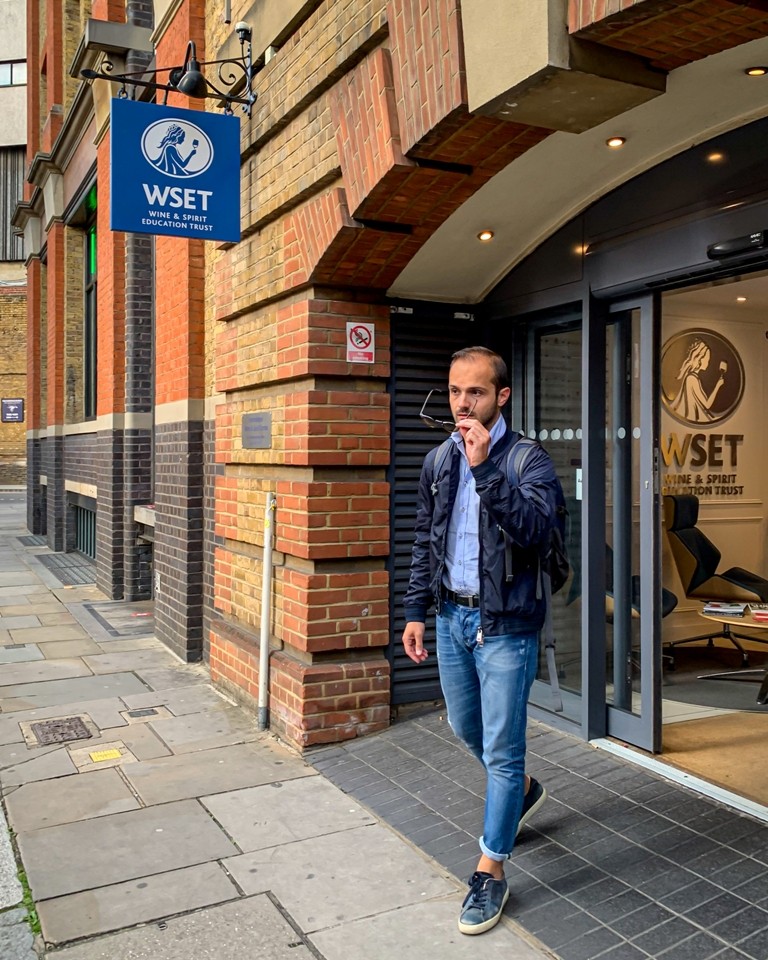
Professional Achievements and Recognitions
V.B.: In January 2016, you launched WineryLovers, an ecosystem featuring a detailed website, an Instagram account (currently with 205,000 followers), and a community fueled by interactions. How has the concept of WineryLovers evolved since then? What were your initial goals, what major challenges did you encounter, and what key lessons have you learned?
S.R.: So, I started posting on the Instagram account @winerylovers on January 28, 2016. I believed in my vision; the wine industry needed to change its approach to communication by embracing digital platforms and social media. From the beginning, my page was designed to be a gathering place for all wine enthusiasts, with wine as the sole focus.
To grow the account quickly and effectively, I decided to repost photos from other users. Anyone who tagged @winerylovers or used #winerylovers has the opportunity to be re-shared, and this practice continues to this day. Initially, I posted four times a day at 8 AM, 1 PM, 5 PM, and 9 PM, but I gradually reduced the frequency to just once a day.
I chose to use English for all my content, as I wanted to eliminate any language barriers for wine lovers from different countries. Reposting other users’ photos helps foster a community – when I share Jane’s photo and John asks about Jane’s wine, I might not be able to answer, but a connection is formed between them. This can lead to friendships, professional relationships, or even casual conversations.
In addition to these reposted contents, I occasionally share my own posts, whether to discuss a wine I’ve tasted or in collaboration with wineries (in which case, the sponsorship is disclosed through specific hashtags).
The biggest challenge with the @winerylovers account has been navigating Instagram’s algorithm, which tends to favour new and original content featuring people. While it’s important to be aware of the algorithm, I believe it’s essential not to be a slave to it. This same principle applies when I consult with companies. Ultimately, I want my page to inspire wine lovers by suggesting wines, pairings, and destinations.
V.B.: Your visual content is incredible. Have you studied photography? Do you think it would have been possible to achieve such success with your project without an eye for beauty and some photography skills? How do you attribute your growing success in the wine world – is it more a matter of gift and talent, or hard work, analytics, and strategy?
S.R.: Thank you! As I mentioned, my content mainly consists of reposts, which include photos and videos created and published by other users, along with some of my own work. For the content I choose to share, I follow a careful selection process: it must be aesthetically pleasing, captivating, original, and inspiring, drawing from a variety of states and regions. I try to alternate different types of content based on their origin, style, or theme.
I started creating my own content with my iPhone; back in 2016, I did not know about photography and could only take pictures with my smartphone. However, by the summer of 2018, I found the iPhone limiting and was unable to capture the images I envisioned. This prompted me to purchase my first mirrorless camera, a Fujifilm. Since then, I have dedicated myself to photography, focusing on both theoretical knowledge and practical skills. I realised the importance of presenting a professional service and have built a complete set of equipment that allows me to conduct specific photo shoots tailored to various companies’ needs.
I love capturing moments, memories, and experiences through photography. Having a sense of beauty, combined with photographic skills, empowers me to create high-quality content that aligns with businesses’ needs. This is similar to wine expertise, where a blend of natural talent and developed skills is essential. Consistency and dedication are crucial in any field. While we may all have different inclinations, a minimum level of training and commitment is necessary to nurture these qualities.
V.B.: Wine Enthusiast selected WineryLovers as one of the top 10 Wine Social Media Accounts to Follow, recognizing some of the wine world’s most beloved pages. This is an incredible recognition; how does it make you feel? What are your ambitions for growing this platform?
S.R.: I felt a great sense of satisfaction! I must admit, I was incredulous when I received the email informing me of the recognition. We are talking about one of the most respected institutions in the wine world, and I considered myself just one among many. However, their decision to award me indicates that there is value in what I have done with @winerylovers.
Upon receiving this honour, I committed myself to striving for even better work. If Wine Enthusiast recommends @winerylovers as one of the must-follow accounts in the wine community, we cannot let down the expectations of their readers; we must maintain a high standard of quality. My desire is for WineryLovers to become a hub – a meeting point for various wine enthusiasts – a place to share tastings, tips, pairings, and travel destinations that extend beyond Instagram. With the web, we have the power to break down barriers and bring people closer together.
V.B.: You have been honored with the prestigious Fortune Under 40 Wine Award, and you also achieved the top rank in Italy according to the World Influencer Ranking. How do you feel about these achievements?
S.R.: Being recognized by Fortune as one of the 40 Under 40 in the Wine category was quite unexpected. I couldn’t believe I had been chosen among the 40 most influential and promising individuals under 40 to watch in the wine industry. However, this recognition also brought with it a significant sense of responsibility. Being selected from such a distinguished group of professionals means I must perform well; failure is not an option. I need to demonstrate every day that those who chose me made the right decision. It is important for me to show that I truly deserve this honour. If I have done well so far, I must strive to do even better.
This mindset applies not only to this recognition but to all the important accolades I have received over the years, from 2016 to today. The trust that people have placed in me through these rewards motivates me to continuously improve and excel, day by day.
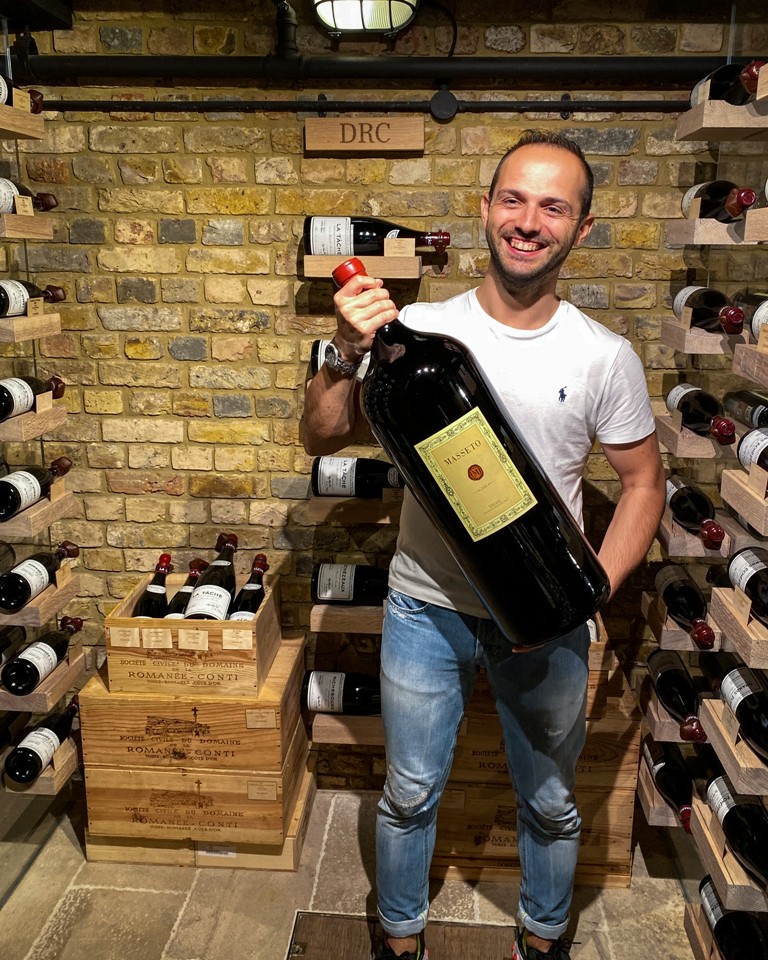
Current and Future Projects
V.B.: Could you tell more about the private wine club and the community you’ve built under the WineryLovers umbrella? How does it help wine professionals and wine lovers achieve their objectives?
S.R.: Currently, WineryLovers serves as a meeting point for wineries and wine enthusiasts, offering opportunities to discover new wineries, engage in interesting tastings, and explore destinations that cater to all tastes and budgets. The goal is to be a source of inspiration!
At this time, our activities are primarily focused on Instagram, but I have exciting plans to elevate WineryLovers to the next level, adding even more value for both consumers and companies. While I can’t reveal specifics just yet, we can expect some news about WineryLovers between the end of 2025 and the beginning of 2026.
My greatest desire is to make wine accessible to a wider audience. In the past, discussing wine often felt elitist; you either had to work in the industry or know someone who did. Nowadays, thanks to the internet, wine has become more accessible to everyone. Don’t know what tannins are or how to identify them? Simply use a search engine or AI to find out!
With WineryLovers, I aspire to encourage more people to engage with wine – always in moderation – because each bottle holds a story, interlaced with the lives of people and the essence of places.
V.B.: Looking ahead, what are your plans for further professional and personal development in wine, both within the WineLovers platform and beyond? Do you have ambitions to pursue the Master of Wine designation?
S.R.: Looking ahead, my next goal is to obtain official certification as a WSET Educator. Over the past year, I have held several teaching positions with the Mercuri Wine Club. In this role, I have taught WSET Level 3 in Wines to industry professionals and served as an educator for CIEE Milan, where I trained American university students – none of whom were experts in the field – during their cultural exchange program. I provided them with a comprehensive education on wine, covering topics such as viticulture, vinification, tasting, pairing, and business. I find great satisfaction in witnessing my students grasp the concepts I teach. Therefore, in 2025, I aim to further enhance my skills as a wine educator.
As for the Master of Wine (MW) path, that remains a dream for now. While I would love to embark on that journey to enrich my expertise, it is a very demanding path, both in terms of time and finances, and it is not currently feasible for me. When I do decide to pursue it, it will be because I am committed to seeing it through, as I cannot approach it lightly. We’ll see what unfolds!
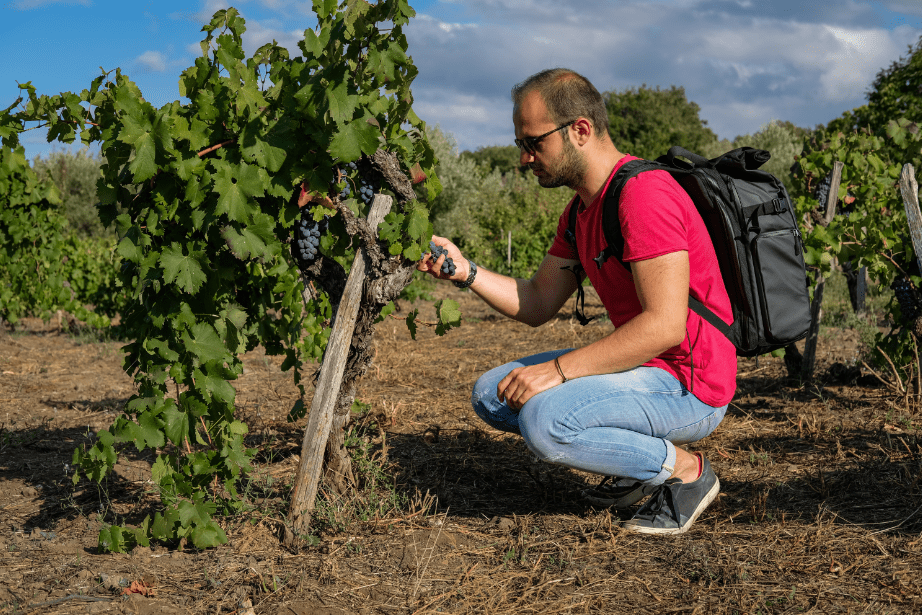
Digital Influence and Strategy
V.B.: Considering your role as a digital consultant and strategy manager for multiple wineries, did you acquire specific digital marketing skills, or did you learn by doing? What do you think is most important for being efficient in digital strategy and digital marketing? Does your background in Computer Engineering help you in this area?
S.R.: In addition to my work in wine communication, I serve as a consultant for companies focused on their digital communication. I offer a range of services, including content creation, strategy development, and editorial planning. My skills in these areas have been developed over time as a self-taught individual; I studied the theory independently and applied it first to my own tasks and then to those of others, interpreting different situations as I went along.
There is no one-size-fits-all solution in this field. It is essential to continually assess each situation and adapt accordingly. The landscape of the web and social media is ever-changing, influenced by algorithms and technological advancements. What works today may not be effective tomorrow, just as yesterday’s strategies may no longer apply.
I believe that someone in my position must have a foundational understanding of various areas, such as marketing, sales, copywriting, and content creation. While it’s beneficial to collaborate with experts in each of these fields, having a broad knowledge base makes it easier to navigate diverse situations. Each scenario has its unique characteristics and needs. For instance, while Instagram Reels may currently be the most promoted content type on the platform, I don’t feel compelled to create them if I don’t have meaningful content to share. Instead, I would seek alternative methods or find a distinct way to utilize Reels.
Regarding my background in computing systems engineering at Politecnico di Milano, I am very satisfied with my choice and would make the same decision again. Although my degree did not directly provide the tools and skills I use in my work today, it instilled in me a unique mindset that I apply to problem-solving and analysing situations. I would follow the same path, as it has ultimately led me to where I am today.
V.B.: At the recent Wine Future Coimbra event, where WTA was the official informational partner, you were part of the expert panel for Panel 1: “TikTok, Discord, and Paid Influencers – Reaching New Customers.” Could you tell us more about this experience and the main message you conveyed during your presentation?
S.R.: The Wine Future 2023 event in Coimbra was both interesting and stimulating. When Pancho Campo, the Founder of the Planet Future Foundation and CEO of Chrand Events USA, reached out to me, I immediately knew it was the right place for me to contribute my expertise. The event’s slogan, “Breaking down barriers,” resonated with me deeply.
During the event, several industry experts from around the world, including myself, gathered to discuss ways to enhance the sector. In my panel, alongside Mariano Braga, Delphine Porte, Georgia Panagopoulou, and Luke Flunders, moderated by Cristina Mercuri, we focused on how to engage new, younger consumers by leveraging the latest web innovations.
I shared insights on effective content creation, providing examples and highlighting practices to avoid. Content creation is a passion of mine, as it is fundamental to all forms of communication. To illustrate my point, I posed a thought experiment: if I placed a bottle of wine on a table and asked 10 different people to photograph it in their unique style, I would receive 10 distinct images, each showcasing different perspectives and highlighting various aspects of the bottle. That’s why content creation is so important!
By the way, the next Wine Future event is scheduled for Miami, from November 13th to 15th, 2025.
V.B.: In one of your interviews, you mentioned that when starting your journey with WineLovers, “it was clear that the time to change the communication in the wine sector had come.” What are your thoughts now on the state of wine communication in Italy and globally? How effective is the wine industry in addressing consumers?
S.R.: I believe there is still much work to be done. In 2016, the sector’s communication relied solely on print, with websites as the only form of digital presence. Today, while people are generally more familiar with social media, most do not use it effectively. We continue to discuss technological innovations like AI and AR and how to attract new generations with content, but the real issue lies elsewhere: basic tools are not being utilized.
For instance, why do so many wineries still have websites that aren’t mobile-friendly in 2025, especially when about 60% of traffic comes from mobile devices such as smartphones and tablets? Why do most websites lack an integrated newsletter service, which can be a powerful marketing tool if used correctly? Additionally, why are companies’ social media profiles often poorly maintained when it has been repeatedly shown that these should be part of their marketing strategy? Why don’t websites integrate Meta’s Pixel, a free tool that is useful for optimizing ads? Why is the budget for content creation frequently overlooked when content is the visual aspect of communication – the first thing consumers see?
These are just a few questions to consider, and I could list many more. It is now 2025, and we have all the necessary tools, within budget, to communicate effectively. If a company needs assistance, they can always consult a professional who can guide them through the best choices and strategies.
We need to start from the basics. It’s essential to be clear about our objectives, understand where we want to go, identify our target audience, and then outline a plan. It’s somewhat analogous to someone wanting to travel from Rome to London. There are various options, each with its pros and cons: walking is the cheapest but also the longest and most demanding; travelling by train takes less time but is never as fast as flying, which is the quickest option, though prices can vary widely based on deals and how far in advance you book.
Another often overlooked aspect is consistency. People expect to see immediate and significant results, such as a sudden increase in sales, but achieving this takes time. You need to continuously engage with your digital communication and “educate” search engines to find you. Many individuals try for a few months and then give up when they don’t see concrete results. Others believe that posting once a week on Instagram is sufficient, but this is practically ineffective; that content would be like a drop in the ocean. Therefore, consistency is key.
V.B.: Wine social media influencers: do you have any personal criteria for distinguishing who is who? What else must wine business owners learn to navigate the influencer landscape effectively and achieve their objectives in these types of collaborations?
S.R.: This opens up a whole new world where you can literally find anything and everything. I’ll try to be brief, as this topic could easily develop into a lengthy discussion.
Let’s start with a premise: an influencer is a successful person who is popular on social media and often followed by the media, capable of influencing the behaviours and choices of a specific audience. However, in the wine world, the term “influencer” is often incorrectly equated with “Instagrammer”. It’s a common misconception that if someone has an Instagram account and shares some tastings, they are automatically a wine influencer. This is not necessarily true, as some individuals may simply use Instagram to track their own tastings.
That said, companies can create partnerships with influencers to reach their target audience. Before starting a collaboration, it’s crucial to ask yourself several questions: “Is this influencer the right fit for me? How do they influence their audience’s choices? Is their language in line with my company’s philosophy?”
To gain a clearer picture, you should start by requesting a media kit from the influencer. This will help you determine whether they are suitable for your brand. If I were a winery considering an investment in a wine influencer, I would want to collaborate with someone who is competent and professional, fluent in the language of wine, and knowledgeable about the subject – someone who has invested time and effort into understanding wine.
The media kit will also help clarify whether their audience aligns with my target market. Additionally, I would research their past collaborations with other brands – who they collaborated with, the kind of content they created, their style of language, and the feedback received both online and offline.
Wine influencers can be a powerful asset in your marketing strategy, but they can also waste your time. The effectiveness of the partnership always depends on who you choose to work with – whether they are professionals in the field or not.
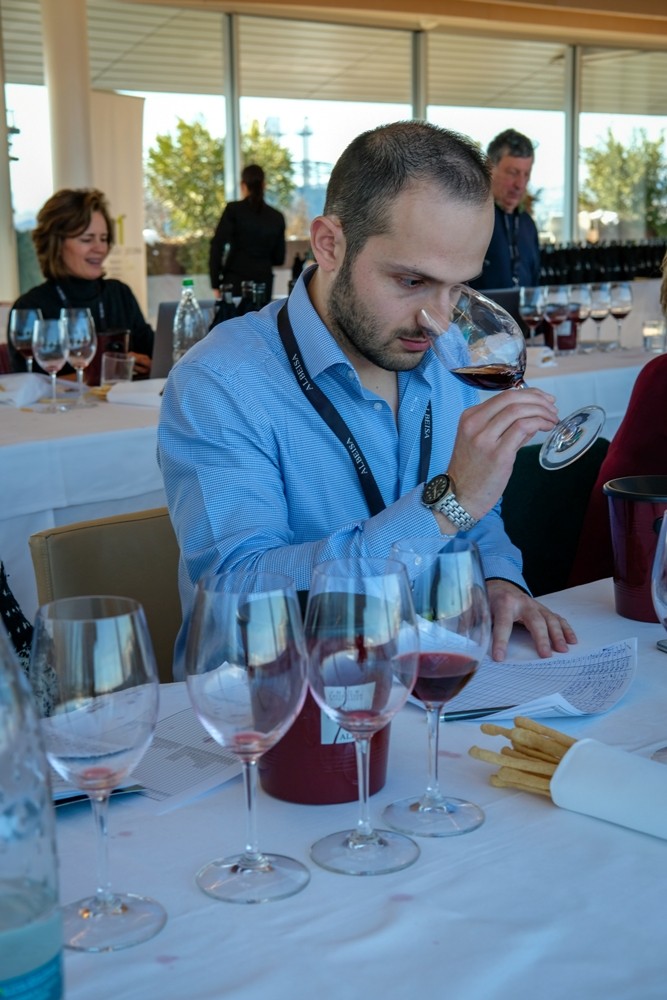
Industry Insights and Personal Preferences
V.B.: There’s a widespread discussion within the professional community about the global decline in wine consumption, even in markets that were traditionally seen as leaders. How do you perceive the evolution of consumer interest in wine against this backdrop? How would you describe the current era for wine professionals, and what might future generations say about this period in the industry? What challenges and opportunities do you see emerging from this trend, both for your own work and for the industry at large?
S.R.: Wine consumption is declining, even in leading countries, and there’s no single explanation for this trend. Various socio-economic and cultural factors have evolved over recent years. We should start with the understanding that the wine available on our tables in 2025 is different from what was produced in the past, just as our lifestyles have changed. It’s essential to take a broad view of the issue.
One major factor is the shift in consumption patterns. Growing awareness of the health effects of alcohol has led many consumers to reduce or eliminate their intake of alcoholic beverages, including wine. Additionally, economic factors are at play; the rising cost of living has diminished consumers’ purchasing power, prompting them to cut back on non-essential expenses like wine. There is also a heightened focus on the consequences of drunk driving, as many states have implemented stricter penalties and sanctions. Furthermore, the booming craft beer sector and a plethora of premium non-alcoholic beverages have emerged as appealing alternatives for those looking to avoid alcohol altogether. This raises the question of dealcoholized wines, a trend that can no longer be overlooked.
The wine industry needs to adapt without overreacting. Staying informed about market trends is beneficial, but these trends shouldn’t be the foundation of a winery’s strategy. Many wineries are currently fixated on attracting young consumers, particularly Generation Z (those aged 18-21, depending on the law), and are basing their production and marketing strategies around this demographic.
However, each person’s journey to appreciating wine is unique. Personally, I transitioned from soft drinks to low-alcohol beverages, then to spirits, and only then began to appreciate wine in my mid-twenties. The environment a person grows up in also plays a significant role; for instance, a young person whose parents are winemakers may be introduced to wine earlier than someone from a family of teetotalers.
It’s misguided to frame these discussions solely around the age of consumers or specific generations. Instead, we should consider the individual’s knowledge and experience with wine in relation to their age when developing marketing strategies. I believe we should aim to engage consumers by educating and intriguing them, providing a diverse range of wine styles, but without applying excessive pressure to conform.
V.B.: How do you see the trend of alcohol-free wines making its way into the hospitality industry? Is there a way to build a wine tourism product around it?
S.R.: The trend of alcohol-free wines is definitely one to watch as it continues to grow, and alcohol-free spirits are also gaining traction. Many people are seeking alternatives to alcoholic beverages for various reasons, such as health concerns or the need to drive. This shift prompts a broader consideration beyond just the wine industry.
Creating an enotourism product around alcohol-free options is complex and costly; simply producing a dealcoholized wine and adding it to your portfolio isn’t enough. It’s crucial to understand whether consumers who prefer alcohol-free wine will also be interested in your other classic wines that contain alcohol. For instance, if my catalogue includes seven wines with alcohol and only one without, I need to assess whether that dealcoholized wine serves as a gateway to attract younger consumers who may eventually enjoy my classic offerings. Alternatively, it may provide a valid option for my audience when they cannot consume alcohol.
However, it’s important to recognise that my dealcoholized wine will compete with a different market: the market for soft drinks. Therefore, careful reflection is necessary to navigate this emerging trend effectively.
V.B.: Do you have personal preferences in wines and wine tourism? If you had the opportunity, where would you go without hesitation? Are you emotionally connected to any country, region, or brand?
S.R.: That’s a great question! I am a very curious person who loves to explore the world of wine, always seeking to discover something new. I don’t consider myself a “label drinker” because I enjoy tasting various wines. This curiosity is what initially drew me to the world of wine.
I don’t have a single favourite wine; my preference depends on the occasion, the place, and the company I’m with. However, there are a few staples that I always keep in my cellar. I am particularly fond of classic method sparkling wines, not necessarily Champagne, as well as Nebbiolo in all its forms – Langhe Nebbiolo, Barolo, Barbaresco, and Roero – but also outside Piedmont. I also enjoy Riesling, which produces versatile wines that range from dry to sweet and from sparkling to still.
When I travel to a new wine region, I make it a point to learn about everything related to that area, including its traditions, culture, and the people who live there, as wine is deeply connected to its place of origin. I have a special affinity for Italy, being Italian myself, and I aspire to promote Italian wine and culture abroad. I communicate mainly in English, as my audience is predominantly non-Italian.
In addition to visiting the main wine regions, I am eager to explore emerging areas as well. Climate change is enabling wine production in regions where it was previously thought impossible, but it is also challenging some historic and important wine areas.
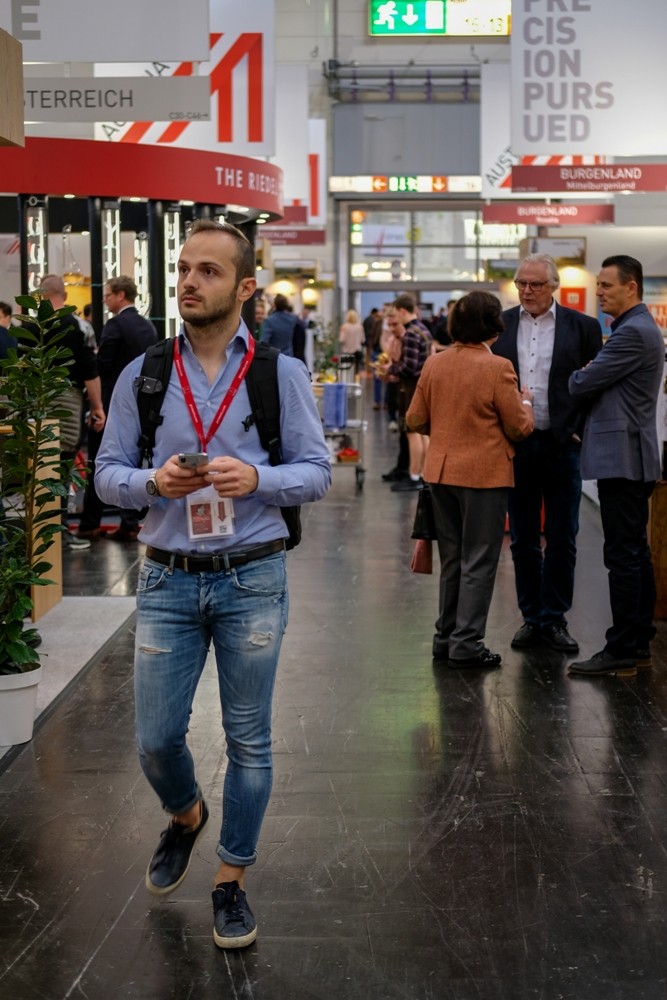
Operational Challenges and Clientele
V.B.: People who know you describe you as serious, strategic, pragmatic, and thoughtful in your professional approach. Could you share what a typical day looks like for you as a wine consultant? What does your routine include, and what principles shape your work style? Additionally, could you tell more about your clients? What values influence your work, and what types of people and businesses do you prefer to work with?
S.R.: Yes, that’s exactly how many people who know me for my work describe me, which I believe reflects my professionalism. I think that professionalism is fundamental, and it’s often overlooked in a world focused on instant gratification. I chose this job, or rather created it from scratch, because I thrive on variety and dislike monotony.
Instead of following a fixed routine, I have many different routines that keep my days dynamic. For example, on Monday, I might work from home on office tasks. On Tuesday, I could attend a press lunch. Wednesday and Thursday might find me on tour in different regions. Then on Friday, I might rush back home, change my suitcase, and head out to judge a competition. After that, I could return home, spend a couple of days catching up on office work, then go to a client to create daily content, and finally, I might begin teaching a five-day WSET Level 3 in Wines course. Every day is different, with activities that alternate in various ways, and I love that aspect of my work.
This flexibility allows me to organise my time effectively and dedicate the right amount of energy to the companies that trust my professionalism. I need to resonate with these organizations; I have to appreciate their products and understand their mission, as well as connect with the people behind them. This criteria is crucial because, without that connection, collaboration can falter.
When a winery contacts me for a collaboration, whether through WineryLovers or as a consultant under my name, Simone Roveda, I always ask for samples of their products. If the winery is accessible, I prefer to visit in person to learn more about them. Whether they produce inexpensive wines or super-premium offerings, regardless of their size or origin, what truly matters is my personal enjoyment. I want to be excited about having their bottles on my table and feel comfortable laughing and joking with the team behind the brand, not only having work. These factors guide my decisions for work collaborations.
V.B.: Your clients are mostly Italian wineries; do you define yourself as an expert in Italian wine, or does the scope of your work extend beyond that? Could you tell about the projects you are particularly proud of?
S.R.: Yes, it’s true that I primarily collaborate with Italian wineries and companies, mainly because I live in Italy, which makes proximity beneficial. I won’t deny that I would love to collaborate with foreign partners as well, and I have had a few opportunities to do so in the past. Overall, I consider myself knowledgeable about Italian wines, although there are certain areas and regions that I would like to explore more deeply. It can be challenging to stay up-to-date with the entire Italian wine scene, given the hundreds of grape varieties that exist. Moreover, wine in Italy is deeply rooted in culture, so it’s not just about tasting different bottles; it’s also important to understand the surrounding aspects. Additionally, my studies and travels have allowed me to gain a deeper understanding of some foreign wine regions.
As for projects, I don’t have a specific one to mention, as everything I’ve done so far has been meaningful. However, what brings me the most satisfaction is the journey I’ve taken so far – how I transformed a single idea from 2015 into my career.
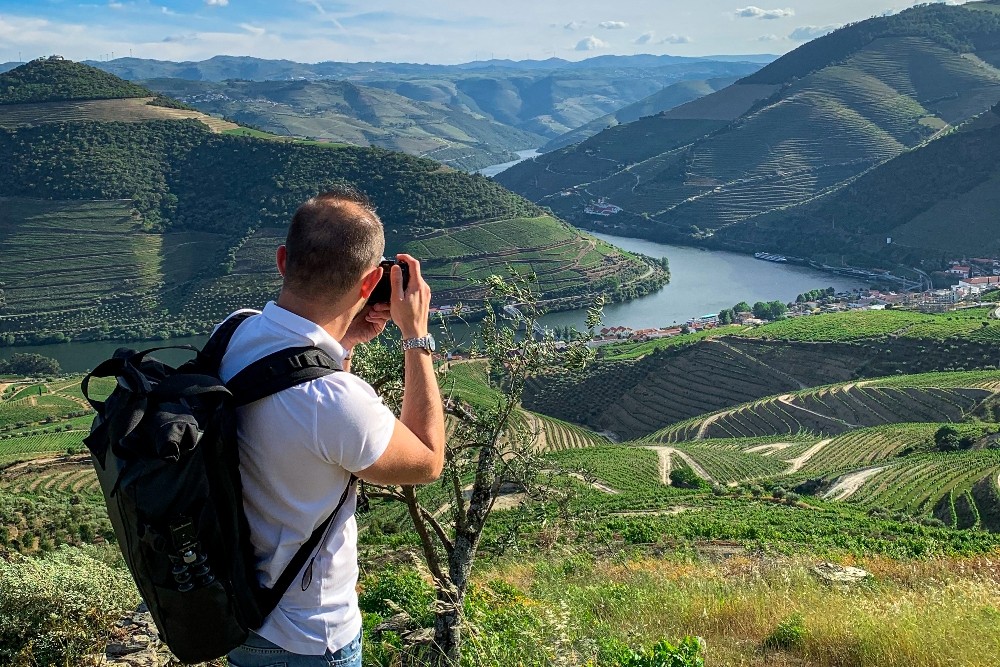
Wine Travel Awards Ambassadorship
V.B.: Simone, having recently been appointed as an ambassador for the Wine Travel Awards, could you describe what this role means to you? Do you see it as a way to promote greater appreciation and recognition for the global wine tourism sector and its professionals?
S.R.: I am excited to share a significant milestone in my journey as a wine communicator: I have been named an Ambassador for the Wine Travel Awards. This role presents a unique opportunity to promote the incredible experiences offered by the global wine tourism sector.
The Wine Travel Awards is a platform dedicated to recognising and enhancing excellence in wine tourism. Being appointed as an ambassador inspires me to further promote and communicate about wine. In this role, I aim to raise awareness of the diverse and enriching experiences that wine tourism has to offer. From exploring beautiful vineyards and tasting exceptional wines to immersing oneself in local cultures and traditions, wine travel truly has something for everyone.
I believe it is essential to recognise and celebrate the passion and dedication of the professionals who make these experiences possible. Winemakers, sommeliers, hoteliers, and tourism operators all play vital roles in creating unforgettable journeys for wine lovers across the globe.
As an Italian, I am especially eager to spotlight some of Italy’s lesser-known wine regions in this promotion. Through my role as ambassador, I hope to inspire a greater appreciation for the unique contributions of the entire wine tourism ecosystem. I look forward to collaborating closely with the Wine Travel Awards to showcase the exceptional individuals and destinations that are shaping the future of this exciting industry.
Stay connected with Wine Travel Awards:
- Facebook: https://www.facebook.com/WineTravelAwards/
- Instagram: https://www.instagram.com/winetravelawards
- LinkedIn: https://www.linkedin.com/company/winetravelawards/
